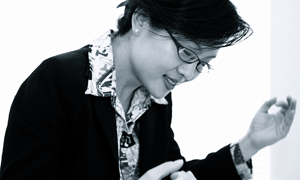
Copyright © 2005-2022 Studio XiWang, all rights reserved.

photo by: Eason Kong
A Labor of Love, September 10, 2018
[read full review]
Philadelphia Orchestra to perform musical piece by SMU associate Professor Xi Wang
[read full review]
Philadelphia Orchestra Offers Commission to Associate Professor of Composition Xi Wang
[read full review]
Philadelphia Orchestra – Showcase for Works by Women Composers
[read full review]
East met West on Saturday afternoon in a concert that will be hard to dethrone as the season's most extraordinary. It happened in two substantial, and theatrical, works by Xi Wang, presented by Voices of Change, Dallas' modern-music ensemble.
-Scott Cantrell, The Dallas Morning News, March 14, 2015
[read full review]
There was a time, back in the 1970's, when Western classical composers added theatrical elements to their works such as projections and dance. Some visual additions were closely related, others purposely unrelated and still others left to chance as to what would happen (referred to at the time as "happenings"). Two works by composer Xi Wang, for the latest concert from Voices of Change, drew on this multilayer history. Dallas City Performance Hall was an excellent venue, with its even and lively sound and great sightlines.
-Gregory Sullivan Isaacs, TheaterJones, March 17, 2015
[read full review] [read full review] [read full review]
"Fall at the Barnard Cottage," a new piece written for the group by SMU composition prof Xi Wang left a very positive impression. About 12 minutes long, inspired by a dawn-to-dusk day in the wooded MacDowell Colony in New Hampshire, it's in A-B-A form.
"It's my most romantic piece," Xi told me in the lobby beforehand–romantic in the sense that it's directly inspired by nature sounds and movements. In the midst of mainly elusive tonality, the music also admits some surprising ooh-la-la progressions.
A rising motif from the harp provides a kind of signature, with winds feeling their way into the stop-and-start procedings. Strings join in a wide-ranging exploration over rustling effects, and then brasses add to textures of increasing complexity.
The B section is alive with quasi-nature sounds: rustlings, scurries, twitters and thumpings, around which strings develop a fugue. As this runs down, piccolo twitters announce the return of calmer, more atmospheric music, and harp and winds lead the way to a final fadeout.
- Scott Cantrell, The Dallas Morning News, May 21, 2012
The Rhapsody for Solo Cello by Xi Wang (b. 1978) was, like so many solo cello pieces, a tour de force, but a very personal composition as well. Wang has written, "The piece is a result of my reaction to a series of unexpected events that happened in my personal life as well as in my friend's life. 'Rhapsody' was written within a week and I was being extremely emotional. … For me, composing is a process of relieving tension, telling stories, and walking towards my ideal realm." Díaz gave this seven-minute tonal piece a spectacular reading. His many harmonics sounded like tears; his tremelos and very fast passages sounded like the emotional whirlwinds Xi Wang must have endured while writing it. This was a piece I'd be happy to hear again.
- Susan Miron, The Boston Musical Intelligencer, June 13, 2011
[read full review]
"We have an outstanding new composer in our midst. So you'd think from three works by Xi Wang, who last year joined the faculty of Southern Methodist University's Meadows School of the Arts, on Sunday night's Voices of Change program...
The opening 'Silhouette' is dreamily liquescent, 'Nostalgia' hauntingly beautiful. 'Operatic Rhapsody' echoes the florid vocalism of traditional Chinese opera. 'Love Song" begins as a dialogue between violin (here played from the organ loft above the stage) and cello (on the stage floor), then chalesces into a duet. 'Carnival plays with a strange little tune, and at the end the musicians walk off in different directions.
Xi's 2004 Between..., for two percussionists, in stereo, explores in turn clapping, drumming, striking and stroking metal and wood instruments, then a mélange. As fascinating for nuances of timbre as for rhythmic permutations, it got a riveting performance from Kimple and Drew Lang.
The 2005 Rhapsody, for solo cello, begins with passionate flourishes, then seems to tell a sad tale before releasing great torrents of notes. It had a virtuoso advocate in Andrés Díaz."
- Scott Cantrell, The Dallas Morning News, December 6, 2010
[read full review]
"Works by SMU educator, who grew up in China, to premiere in Voices of Change concert"
- Scott Cantrell, The Dallas Morning News, December 6, 2010
[read full review]
"Ms. Xi's moving Symphony No. 1, inspired by the 2008 earthquake in the Sichuan Province of China …"
- Steve Smith, New York Times, May 24, 2010
"Chinese-born, with a doctorate in composition from Cornell University, Xi follows the Chinese custom of keeping her surname first. And she pays tribute to another Asian composer in her 3-year-old Above Light - a Conversation with Toru Takemitsu.
Ten minutes long, the piece opens with watery washes and free-floating quasi-melodies that evoke the late Japanese composer. But assaults of brass and percussion soon set up the piece's essential dichotomy.
A richly textured section proves surprisingly lush, but slashing strings interrupt the reverie and percussionists get a brief cadenza of sorts. This turbulence, too, settles down, allowing final quiet comments from a piccolo and piano.
Led by music director Paul Phillips, the performance sounded thoroughly accomplished, and it whetted the appetite for more of Xi's music."
- Scott Cantrell, The Dallas Morning News, November 1, 2009